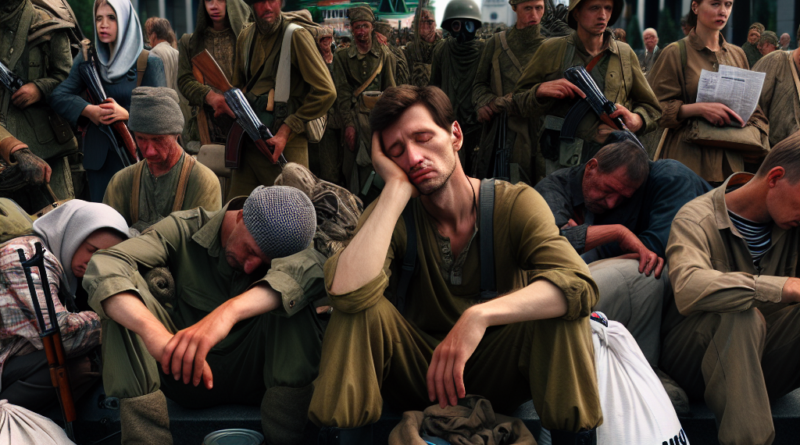Russia Faces Major Issue with Soldiers Returning from War
The Rise of Crimes Among Russian Military Veterans
In the aftermath of the Russo-Ukrainian war, a disturbing trend of increasing crimes in Moscow and across Russia has emerged.
Many Russian soldiers returning from the frontlines are struggling with post-traumatic stress disorder (PTSD) and, unable to cope with the traumas of war, are turning to alcohol, drugs, and succumbing to frequent outbursts of anger and violence.
The Impact on Society
According to online Russian news outlet Verstka, at least 190 crimes, including 55 homicides, have been committed by war veterans in Russia due to PTSD.
Most of the perpetrators were reportedly under the influence of alcohol.
One tragic story involves Alexander Mamaev, who, unable to process his traumatic experiences, tragically killed his wife in front of their children.
Furthermore, reports indicate that many of these crimes have been committed by former mercenaries of the private military company Wagner.
In response, Russian authorities have launched programs to treat returning soldiers, but not all seek help, leading to devastating consequences.
Addressing the Issue
Recent studies by the Bekhterev Psychoneurological Research Institute in St.
Petersburg have highlighted that 3-11% of veterans are at risk of developing PTSD.
Despite efforts by the Russian Ministry of Health to provide psychological support, only a small percentage of affected individuals receive treatment.
Additionally, some soldiers diagnosed with PTSD have been forced to return to the frontlines, reliving their traumas.
This situation is worrisome, especially considering that the actual prevalence of PTSD among veterans might be underestimated.
The Long-Term Consequences
Untreated PTSD can lead to secondary issues such as alcohol or substance abuse, impacting not only the individuals but also their families, especially children living in stressful and dangerous environments.
The key to addressing PTSD lies in timely cognitive-behavioral therapy, where individuals confront and process their traumatic experiences.
It’s crucial to avoid glorifying wartime actions, as it can perpetuate violence.
Instead, therapists should help patients understand their past and overcome feelings of guilt, guiding them towards rebuilding their lives.
Ultimately, the ravages of war affect lives on all fronts, underscoring the importance of providing adequate support and care for those grappling with PTSD.




